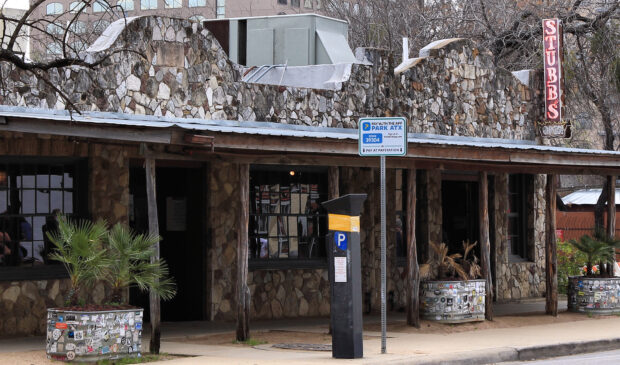Music Commission pushes Council to aid Red River venue district
Wednesday, January 10, 2024 by
Chad Swiatecki The Music Commission wants City Council to approve a round of gap financing, possibly as part of mid-year budget amendments, to provide ongoing organizational support to the Red River Cultural District and its cluster of live music venues in the heart of downtown.
Commission members unanimously supported the item, which didn’t specify a dollar amount for the aid package. Discussion prior to the vote suggested an amount between $120,000 and $300,000 – levels the city has recently provided to other cultural districts – would be appropriate to help the organization address the many issues facing the district that is dealing with redevelopment pressures on all sides.
If Council considers and approves the gap funding request, it would likely be used to enhance many of the RRCD’s operations, improve marketing and promotion of the district to tourists in nearby hotels, and conduct an economic impact analysis to measure what the many venues, bars and restaurants mean to the city’s business climate.
Nicole Klepadlo, interim director of the district, said hospitality businesses on Red River have faced four- and five-fold increases in liability insurance premiums in recent years, with the nearby redevelopment of a portion of East Sixth Street causing rent increases of 60 percent to 80 percent. She said city initiatives such as the Creative Space Assistance Program or the Iconic Venue Fund could assist individual businesses, while the district as a whole should receive ongoing funding that could come from the city’s Hotel Occupancy Tax revenue.
“This funding is critical as we think about Red River Cultural District as a place. This place is a major economic and cultural generator for the city and a key tourism driver from the place of foundation of music,” she said, noting that festivals such as last weekend’s Free Week slate of shows bring 15,000 or more customers to the dozen music venues in the area. “What our organization did this past weekend directly aligns with the purpose of what a (hotel) tax should go towards. Not only is the Red River Cultural District contributing and generating this HOT tax for this program to exist, our program specifically aligns and delivers on the goals (of the tax).”
The funding request comes as the Economic Development Department is working to create a standard framework to establish more districts throughout the city that could include music venues, theaters and other cultural gathering places. During her presentation, Klepadlo noted that other ongoing city policy moves that could assist the district include increasing funding for the CSAP program to provide more rental assistance, creating a density bonus program for live music venues in new developments, and working to make the city’s economic incentives program more useful for music businesses.
Chair Nagavalli Medicharla said the concentration of downtown hotels near the district justifies the city working to build connections with tourists.
“That area has 14,000-plus amenity-filled hotel rooms, and Visit Austin puts these shows out there and promotes them towards tourism,” she said. “It’s very important that at some level we maintain the local character of our city and our music venues and these spaces that, along with bringing national touring acts, also are kind of incubator spaces for new emerging artists to learn and grow. We can’t just left and right lose all these spaces to a growing city.”
Commissioner Anne-Charlotte Patterson said the city’s funding for the Six Square District and the Mexican American Cultural District establishes the precedent of supporting cultural spaces and preventing them from being overtaken by new construction as the city continues to grow.
“The point of supporting those districts in a rapidly changing city is preservation and to make sure that those are cultural institutions and that cultural history is not erased,” she said. “The same issue of erasure is very much possible for Red River Cultural District. And if we want to think of ourselves and market ourselves as the live music capital of the world, then we have to help sustain this specific area as a live music hub.”
Photo by Larry D. Moore, CC BY-SA 4.0, via Wikimedia Commons.
The Austin Monitor’s work is made possible by donations from the community. Though our reporting covers donors from time to time, we are careful to keep business and editorial efforts separate while maintaining transparency. A complete list of donors is available here, and our code of ethics is explained here.
You're a community leader
And we’re honored you look to us for serious, in-depth news. You know a strong community needs local and dedicated watchdog reporting. We’re here for you and that won’t change. Now will you take the powerful next step and support our nonprofit news organization?


